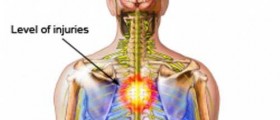
Hypokalemia
Hypokalemia is used to refer to low levels of potassium in the blood. Potassium is an essential mineral which acts an electrolyte, enabling the conduction of nerve impulses and muscle contractions including those of the heart. In addition it regulates the function of cell membranes and the activity of enzymes. Hypokalemia occurs when the levels of potassium go below 3.5 mM, the normal levels ranging from 3.5-5.0 mM.
Causes
Hypokalemia is most commonly brought on either by overall lack of potassium in the body which is usually a chronic disorder; or it can be the result of muscle’ and organs’ sudden consumption of potassium from the blood which is usually temporary. Hypokalemia is often the side-effect of diuretics, which are used to eliminate excess amounts of water in conditions such as liver or kidney disease high blood pressure and congestive heart failure.
Diarrhea and vomiting, as a result of gastrointestinal infections, can lead to dehydration and hypokalemia, which is another major cause of this condition. Due to hypokalemia, the heart can stop beating, thus increasing the risk of fatal outcome especially in infants. Laxative abuse has also been associated with the appearance of chronic diarrhea, followed by the drop of potassium levels. Vomiting interferes with the body’s acidity which makes the kidneys eliminate large quantities of potassium in order to restore thebalance.
Fasting and starvation continued over a long period of time comprise the third major cause of hypokalemia. As a result of starvation, the body starts breaking down protein from muscle in order to transform it into energy, which causes the levels of potassium to decrease. However, an unbalanced diet does not lead to hypokalemia as potassium is obtained from fruits, vegetables, meat, milk and cheese. There have been cases of hypokalemia caused by alcoholism as a result of vomiting, diarrhea or malnutrition.
Symptoms and complications
A person whose potassium levels drop can feel thirsty, constipated and pass large amounts of urine. In diabetics, the levels of blood sugar rise in cases of hypokalemia, as the condition affects the release of insulin. Fatigue, muscular cramps, pain and weakness are the most common muscular complications. Moreover, the body can begin to break the muscle down which is known as rhabdomyolysis. Rarely, leg or arm paralysis can occur.
Hypokalemia affects the heart in the sense that it leads to cardiac dysrythmias (irregular heartbeats). In cases of severe dysrythmias, cardiac arrest or lung paralysis may occur. Small children can also experience cardiac arrest as a result of prolonged vomiting and diarrhea. Tachycardia, an unusually fast heartbeat is another cardiac complication of hypokalemia. Metabolic acidosis, the conditions of raised acidity of bodily fluids, renal cystic disease, hepatic encephalopathy and respiratory acidosis are other possible complications of hypokalemia.

















Your thoughts on this
Loading...